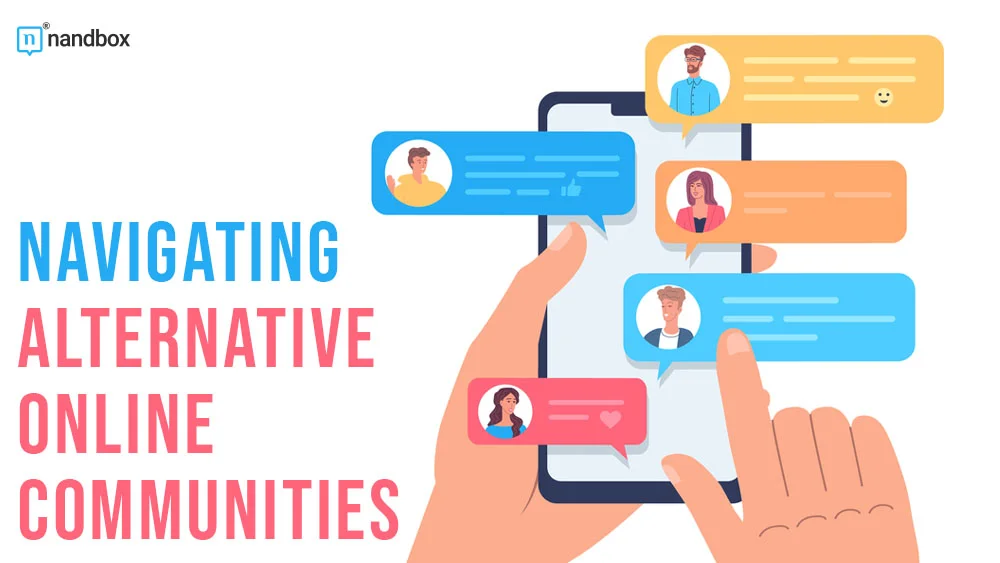In the landscape of online communities, users continuously seek environments that align with their preferences, values, and needs for interaction. As the digital age evolves, reliance on Facebook groups for community-building has seen a shift. Individuals and organizations are increasingly turning to alternative platforms that offer unique functionalities and cater to niche audiences. These non-Facebook communities are not just burgeoning; they have started to redefine the parameters of group interaction and engagement, hinting at a new era of digital congregation.
Diversifying one’s presence across different online platforms can enhance reach and engagement with varied audience demographics. By stepping outside the Facebook ecosystem, group facilitators and members tap into specific functionalities and community cultures that might be absent or less developed in Facebook groups. However, such a transition necessitates an understanding of the dynamics of these alternative spaces, with attention to the group’s purpose, the platform’s audience, and the tools available for managing the community.
Key Takeaways
- Alternative platforms are gaining traction for group interactions, offering varied user experiences.
- A multi-platform approach broadens reach and taps into diverse audience demographics.
- Understanding each platform’s unique community dynamics is essential for successful group engagement.
The Rise of Alternative Online Communities
In recent years, a significant migration towards various group interaction platforms has emerged, reshaping how digital communities convene and communicate.
Drivers of Change
The transition away from Facebook Groups can be attributed to several factors. Firstly, privacy concerns have heightened among users, leading them to seek platforms that offer better data protection. Previously undiscussed, the issue of data ownership has now come to the forefront, with many individuals insisting on having control over their information. Secondly, there’s been a shift in user experience preferences. A segment of the user base favors minimalist interfaces over the feature-heavy layouts that typify Facebook. Lastly, the demand for niche communities has grown. Users are looking for spaces that cater to specific interests and that might not be as populous or supported on mainstream networks.
Alternative Online Communities: Popular Non-Facebook Platforms
In exploring non-Facebook group options, several platforms offer unique features and foster vibrant communities:
- Discord: Initially popular among gamers, Discord now hosts a variety of communities with robust voice, video, and text communication tools.
- Slack: Commonly used for professional and collaborative groups, Slack integrates messaging with organizational and productivity tools.
- Mastodon: A decentralized social network, Mastodon offers user-run servers with diverse communities and a focus on privacy and autonomy.
- Telegram: Known for its secure messaging, Telegram supports large group chats and channels for broadcasting messages to wide audiences.
- Teach.io: For an educational-focused community, Teach is a Facebook group alternative that supports interactive learning and teaching experiences.
These platforms cater to the desire for specialized community building and improved privacy, attracting users away from traditional options like Facebook.
Evaluating Non-Facebook Group Dynamics
When selecting platforms for group interaction outside of Facebook, one should consider how they facilitate user participation and protect member information.
Alternative Online Communities: Community Engagement
Non-Facebook groups often employ different tools and features to encourage active participation. Forums like Reddit offer a subreddit system where members can follow topics of interest. They use a voting system to highlight popular posts, encouraging a form of peer review and interaction. Platforms such as Discord provide real-time chat capabilities, formatted in servers with various channels dedicated to specific topics or activities, fostering immediate communication and community building.
In contrast, services like Slack focus on creating a collaborative environment, useful for both professional and hobbyist groups. Slack integrates various work tools and allows for the creation of channels, both public and private, to manage conversations.
- Key Features for Community Engagement:
- Structured topics and voting systems (Reddit)
- Real-time chat and server organization (Discord)
- Work tool integration and conversation channels (Slack)
Alternative Online Communities: Privacy and Security
Privacy and security considerations play a crucial role in the dynamics of non-Facebook groups. Users often seek platforms that offer robust protection of personal data. For example, Signal and Telegram prioritize end-to-end encryption, making them attractive to privacy-conscious users. These platforms provide secure messaging options for group chats, ensuring conversations remain private.
Moreover, platforms like Mastodon, a decentralized alternative to social media, empower users by giving them control over their data and the servers they choose to join. With the implementation of server-level moderation and data control, users have increased autonomy over their privacy and security settings.
- Privacy and Security Highlights:
- End-to-end encryption for secure messaging (Signal, Telegram)
- Decentralization and user-controlled data (Mastodon)
Alternative Online Communities: Maximizing Reach Outside Facebook
In a digital ecosystem brimming with platforms, understanding where audiences gather and how to engage with them on multiple fronts becomes essential.
Leveraging Multiple Channels
They should establish a strong presence across various platforms such as Twitter, Instagram, LinkedIn, and YouTube. Each platform serves different content preferences:
- Twitter: Brief, timely updates and conversations.
- Instagram: Visual storytelling and brand aesthetic.
- LinkedIn: Professional content and networking.
- YouTube: Long-form video content and tutorials.
For written content, platforms like Medium and Reddit offer opportunities to engage with niche communities.
Integration Strategies
Integration is about creating a cohesive user experience as audiences move between channels. They should strategically link these platforms using:
- Cross-Promotion: Announce content across different platforms. For example, tweet about a new blog post.
- Consistent Messaging: Ensure that the brand’s key messages are uniform across all channels.
- Content Adaptation: Tailor content to the strengths of each platform while still conveying the core message.
- Analytics: Use data from insights and analytics to refine strategies and better target messaging to the desired audience.
Challenges and Considerations
When groups move away from Facebook, they encounter specific hurdles related to controlling the environment and generating revenue.
Moderation and Governance
Effective management of a group is crucial to its success. A primary challenge is establishing a robust moderation system to maintain a healthy dialogue. Without the infrastructure of a platform like Facebook, groups must often design and enforce their own rules. Costs can escalate with the need for:
- Hiring or appointing moderators
- Developing clear community guidelines
- Implementing moderation tools or services
Other governance issues are decisions on privacy settings and data management. Groups must decide on the level of transparency and data control, balancing between protection and openness.
Monetization Potential
Exploring revenue streams is vital for sustainability. Facebook groups have the advantage of a built-in audience, whereas independent groups might struggle with:
- Attracting sponsors or advertisers due to lower visibility
- Setting up membership fees or donations, which could reduce participation
- Offering premium content or services that provide value to members
Further, groups must consider the user’s willingness to pay and compete for their financial commitment amidst a sea of free content online.





